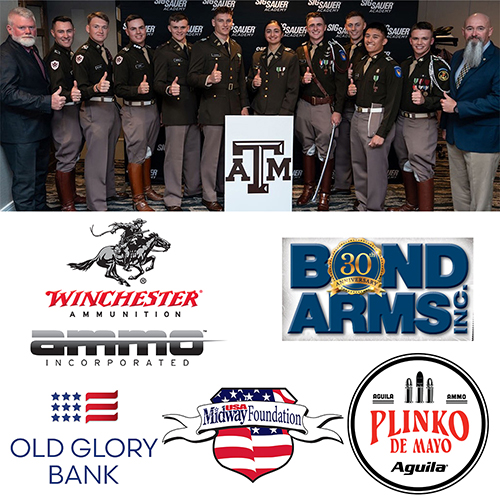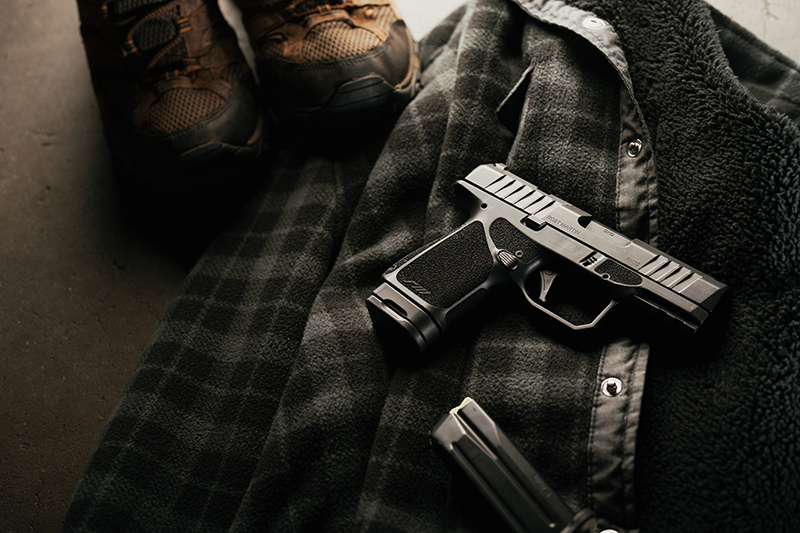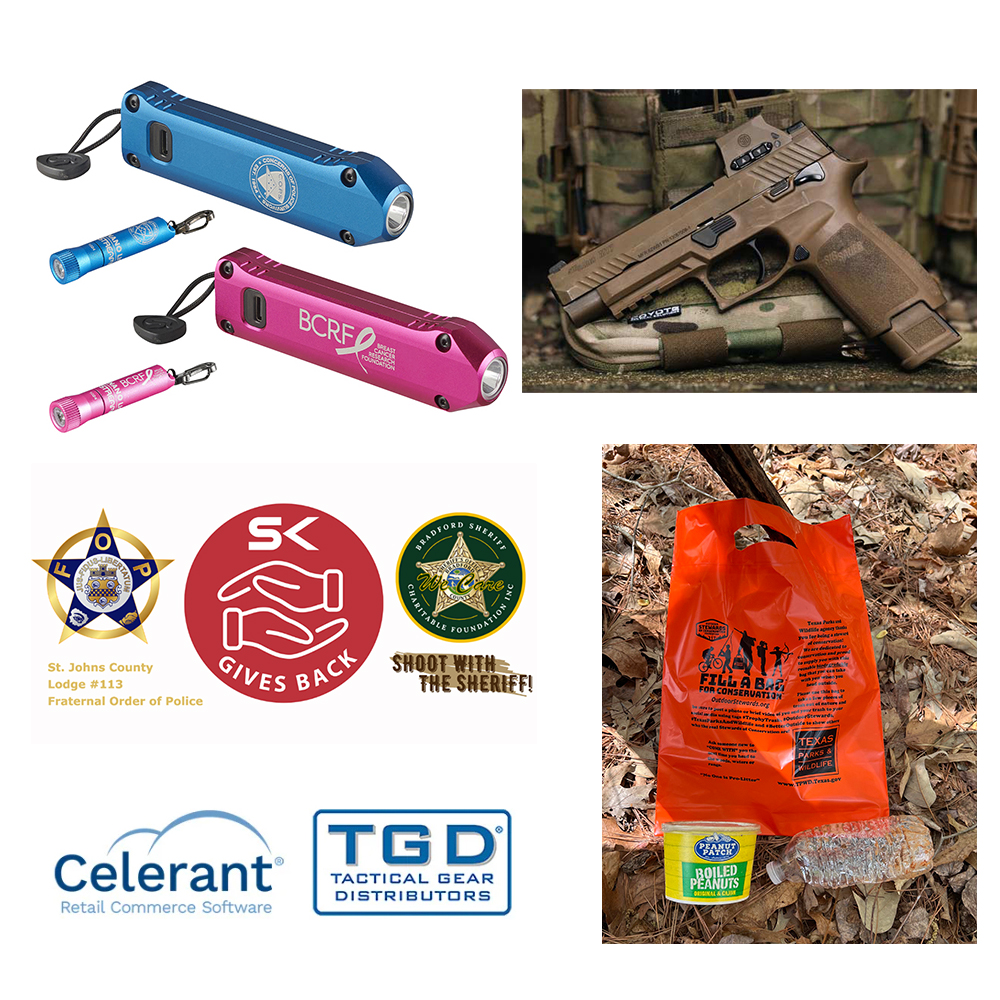Home-Based Dealers Respond To “Pariah” Story
Last week’s “Home-Based FFLs: Why Are We Pariahs?” story in Dealer Advantage generated the most feedback I’ve ever received in seven years as Shooting Industry editor — truly. More than a dozen home-based dealers weighed in to share how they’ve been impacted by the policies of some wholesalers and manufacturers to sell to storefront dealers only.
I’ll preface this with the following: Shooting Industry’s target reader remains the storefront dealer, but the passionate, detailed emails that came in after the story published is a testament to how attuned some home-based dealers are with the content we present — and there’s no disputing they serve a role in their communities. Yes, there are home-based FFLs who exist for the sole purpose of transferring firearms for friends and family, but there are also others operating out of their homes who have set up their place of business to mimic a storefront and serve as personal representative of the shooting sports in their area.
Similar themes were evident throughout the emails. There are home-based dealers who operate in a rural area — claiming their community couldn’t support a full-fledged brick-and-mortar storefront — while others have generated a unique community through their personal attention to customer service.
Whether you’re a distributor, manufacturer, storefront dealer or home-based FFL, we invite you to voice your opinion to editor@shootingindustry.com. Here’s a selection of some of the responses we received over the past week.
Impact Of Being “Locked Out”
Steve Golla, is the co-owner and gunsmith at Twin Oaks Custom Gunsmithing in Tidioute, Pa. His home-based operation has a Type 07 license. He shared the effects of being “locked out” from some of the major distributors and manufacturers and dealing with customers searching for the best price:
“Being ‘locked out’ of some of the major distributors and manufacturers puts us at a serious disadvantage to the brick-and-mortar stores, we cannot compete with pricing or volume like the stores that can order from the larger distributors, so we lose business to them. What generally happens is a customer will call or visit us to get a price and then use those numbers as a base to find the gun they want at a lower price somewhere else.
“It’s almost not worth it to sell firearms except to the couple loyal customers, friends and family that will order through us.
Luckily some of our accounts are with companies like Aero, Davidson’s, Lipsey’s and they will deal with us to help keep us afloat.
“This industry is tough enough with all of the outside political pressure trying to shut us down and strip our rights. When a distributor or manufacturer refuses to deal with us little guys it just shows me they’re more interested in dealing with high-volume, high-dollar sales than working together to drive the industry forward.”
“When a distributor or manufacturer refuses to deal with us little guys it just shows me they’re more interested in dealing with high-volume, high-dollar sales than working together to drive the industry forward.”
— Steve Golla, Twin Oaks Custom Gunsmithing
A Fading American Dream
Dave Apel, owner of New Freedom Enterprises in Moberly, Mo. Being in a small town, he has witnessed three other storefront locations go out of business in recent years. Today, his home-based operation has been stagnate since the rush of 2020:
“2020 was our best year ever — we’ve been in business over 10 years — but the bottom fell out of things. Now with the shooting industry claiming the biggest sales in history I don’t see it.
“Our intent was never to just be a home-based business, but believing in the American Dream we wanted to grow slowly and stay out of debt. That dream is gone. Like George Carlin said, ‘The reason they call it the American Dream is because you would have to be asleep to believe it.’ We always prided ourselves on service and being willing to go to the range with customers to help them decide what gun suited them — not just settling for what they can get. I won’t go that route. The customer comes first, not the dollar.”
Maintaining Good Relationships With Storefronts
Like James Sagstetter from last week’s story, Dan Geil, owner of Blue Heart Training (a nod to his 33-year career in law enforcement) in Hartford, Ill., has spent $0 on advertising to grow his business, which includes concealed carry classes and the production of custom-molded silicone earplugs for students. He maintains good relationships with storefront dealers in his area, saying the perception every home-based dealer is looking to pull customers away from brick-and-mortar isn’t always true:
“Not every home-based FFL dealer is out to corner the market. I’m not saying some wouldn’t try but the small dealers I’ve dealt with do it for the love of firearms in general and provide services bigger dealers don’t or won’t.
“I don’t know what percentage of home-based dealers there are but say 20%. What would wholesalers say if they lost 20% or more of their business, and, what would wholesalers do with 20% or more business? Thanks for listening to another Pariah.”
Isn’t Competition What Free Enterprise Is All About?
Jason Schoefield of Schofield Gun Sales in Philip, S.D., asks, “Isn’t competition what free enterprise is all about?” With the nearest storefront dealer 100 miles away, Schoefield has observed firearm transfers have become preferred by customers — especially since inventories have been anything but normal over the past two years.
“As far as being regarded as a ‘pariah’ by some brick-and-mortar gun stores, I guess I’m sorry you feel that way. If some of them weren’t so arrogant and treated their customers better, there wouldn’t be so many like me out there taking their business. It’s called competition. It’d sure be nice for them to have a monopoly, but that isn’t the way it works in America — no matter how hard they try. If there wasn’t a need for us, we wouldn’t be here.
“I know not all gun stores treat their customers poorly. But all it takes is one time — and your customer will look elsewhere. Also, there are a lot of wholesalers out there that will work with us kitchen table ‘pariah’ gun dealers, so keep looking until you find one!
“I appreciate Shooting Industry takes the time to address issues like this. Thank you!”
“If there wasn’t a need for us, we wouldn’t be here. I know not all gun stores treat their customers poorly. But all it takes is one time — and your customer will look elsewhere.”
— Jason Schofield, Schofield Gun Sales
Is My Money Not As Green?
Another South Dakota-based FFL, Brian Smith of Smith Guns in Belle Fourche has been in operation for 15 years. He weighed in on this topic:
“I’ve had the same experiences as other non-brick-and-mortar businesses as far as dealing with suppliers. Is my money not as green? No, I don’t carry a $100,000 in inventory, I don’t have a rack of ammunition or T-shirts for sale or body armor, but I like to be able to take care of my customers when needed and like to have several options for finding what they want or need.”
“Others chose a business model where they have to keep and pay employees, others like me are a one-man show. Money is Money. We are all in this for the same reason, to make some money, take care of the customer, and provide a service to the shooting public/industry
“Online retailers that drop ship are another issue, no stock on the shelf, just drop shipped from manufacturers that won’t ship direct to me if I called to order for my customer. It gets very frustrating at times trying to help your customer to the point of even buying retail and selling to them at no mark-up. Also MAP pricing … but that’s another story.”
It’s Ultimately The Customer’s Choice
Bill Artemik, president and CIO of Innovative Systems Direct in Wilton, N.H., received his Type 01 and 07 license two years ago and has primarily dealt with transfers but is looking to stock products from distributors. In his view, customers have dictated the need for home-based FFLs:
“The brick-and-mortar industry can be upset with us the same way they’re upset with Amazon.com, Walmart.com and other large online retailers but their argument doesn’t hold much water. There are customers who want to buy from a traditional business and there are those that look for the one-on-one they can get from a small home-based business, too. I can’t speak for the entire home-based FFL resale industry but my customers like the friendly relationship they develop with me.
“I think the industry is big enough to handle both home-based and brick-and-mortar businesses. AT&T complained in the 1980s that breaking up the telecommunications industry would be the death of the business — yet they’re still afloat. (And who buys a land line anymore?) Adapt with the changes or get left behind.
“And distributors, take advantage of the burgeoning market you’ve been ignoring for years and watch your business grow!”
Editor’s Note: In a lot of ways, this represents the tip of the iceberg. We’ll continue exploring this topic as emails come in. Any comments, please send to editor@shootingindustry.com.





